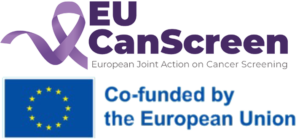The Netherlands Spotlight: Leading the Way in Quantitative Evaluation of Screening Programs

This month’s country spotlight is on the Netherlands. The Netherlands is a leading country in Europe in implementing cancer screening, with active and centralized programs for cervical cancer, breast cancer and colorectal cancer, as well as ongoing pilots for lung cancer screening.
Accompanying these programs are continuous quantitative evaluations of the benefits and harms of screening. The department of Public Health at the Erasmus Medical Center in Rotterdam uses state-of-the-art simulation models to evaluate program performance, and forecast the effects of changes to screening policy.
Within the EUCanScreen WP10, these methods are extended to other EU Member States. Models are being developed to evaluate country-specific benefits and harms of new screening protocols; bringing research methods from a leading country such as the Netherlands to collaborating centers across the EU.
Great examples of such studies were shown at the recent International Cancer Screening Network meeting. Katarina Bartekova presented her work on the projected size of the population who would be eligible for lung cancer screening in each EU Member State. Giulia Carbotti presented simulation model results of the impact of changing treatment costs on the cost-effectiveness of cancer screening, and trends over time of colorectal cancer screening performance in Europe.
Data analysis within EUCanScreen is ongoing, and many more results on the impact of different strategies of screening are expected to come from the Erasmus MC- specifically geared to answer policy questions relevant to each participating EU Member State. To know more, contact [@Evaluation of Screening].

#EuCanScreen #CancerScreening #Netherlands #ErasmusMC #EUHealthPolicy
🔗 Please don’t forget to Subscribe to EuCanScreen Newsletter! 💪
Subscribe to our newsletter to get news and updates.
Subscribe to our newsletter to get news and updates.

The general objective of EUCanScreen is to assure sustainable implementation of high-quality screening for breast, cervical and colorectal cancers, as well as implementation of the recently recommended screening programs – for lung, prostate and gastric cancers. EUCanScreen will facilitate the reduction of cancer burden and achieving equity across the EU.
This project has received funding from the European Union’s EU4HEALTH Programme under the Grant Agreement no 101162959











